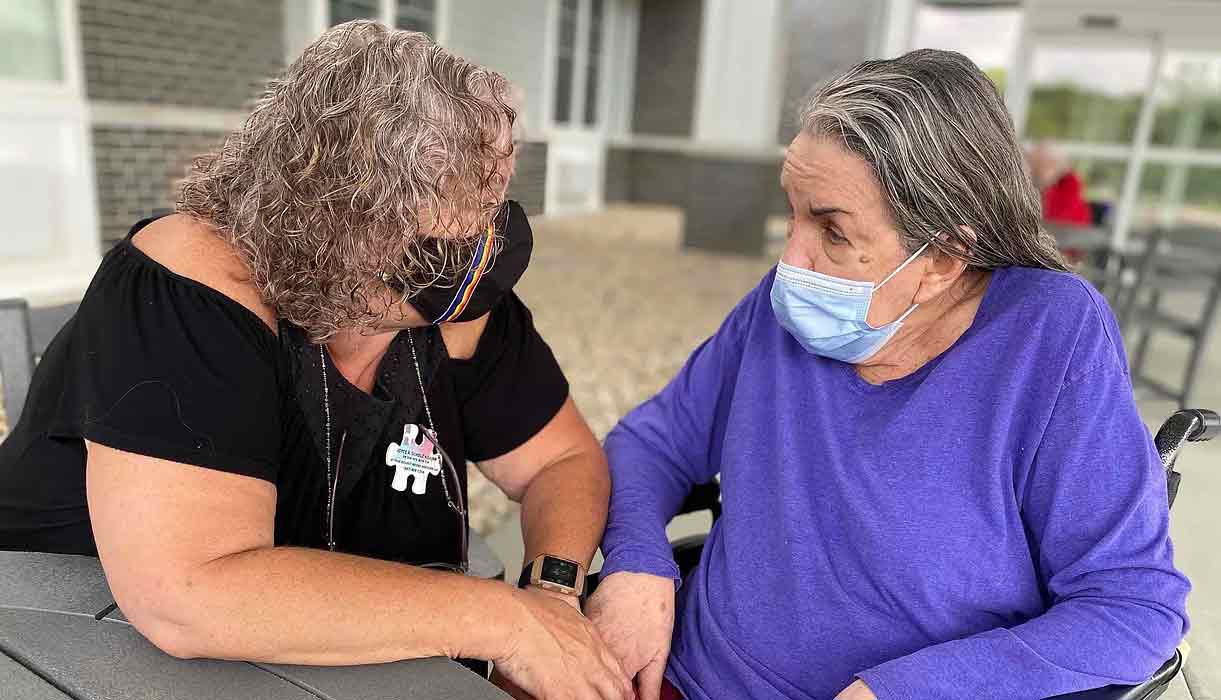When Joyce Schulz-Killian had to be taken by ambulance to a hospital for emergency care, she noticed that the driver seemed to be taking a roundabout way.
She joked with him, “I hope you’re not charging me for mileage.”
The driver only chuckled.
Joyce’s suspicions were on the mark. The bill was much higher than would otherwise be charged for a more direct route to the hospital.
This kind of experience turned this registered nurse with 37 years of experience in the healthcare industry into a full-time patient advocate.
“When I saw the business side of things I had an eye-opening experience,” said Joyce of her journey to becoming a patient care advocate. “It’s hard to be true to the hospital, hospice, or any company you’re working for after you’ve seen what happens.”
“That’s when I saw there was a break in the system, and patients deserve all of their options, not just what one agency/doctor offers them,” she said.
Healthcare Influenced by Profit
Deception and sleight-of-hand describe the practice of many hospitals and others in the healthcare industry. One difficulty, Joyce noted, is that many hospitals place patients under observation rather than admitting them as inpatients to avoid violating a 30-day readmission period limit, for which Medicare can assess penalties.
The problem is that the patient receives overnight care in the hospital and thinks that they have been admitted to the hospital. But then they discover that their healthcare costs and medications are much higher because the expenses are paid out of a different Medicare plan.
And if they are discharged to a nursing facility for rehabilitation, they may be shocked to receive a bill of thousands of dollars because Medicare will cover rehab only upon discharge under formal hospital admission of three overnights, but not any amount of observation time.
The nonprofit Kaiser Health News reported that nearly 1.9 million Medicare patients received observation care in 2014, which was a spike of 103% since 2006. The number of Medicare patients increased by only 5% during that time.
The American Medical Association admits controversy over the matter. It says,
“Concerns regarding the admissions status of patients undergoing short hospital stays intensified in recent years as these stays became targets of Medicare recovery audit contractor (RAC) reviews and the use of observation status as an alternative to inpatient admission increased exponentially.”
Joyce is able to talk to doctors and insurance companies, and as a registered nurse, she has the experience and knows the language these people speak. She is aware of laws of informed consent in this area and is able to leverage that knowledge in her communication with healthcare professionals.
What Does a Patient Advocate Do?
Patient advocates, which are those who guide a patient through the healthcare system, have been around since the 1950s. This person may also work with insurance companies, employers, case managers, lawyers, and others who may have an effect on a patient’s healthcare needs, according to Cancer.gov. Joyce is a private patient advocate – she works only for you.
Joyce’s company is At Your Request Patient Advocate, and she can be contacted at 1-847-809-1214, or JoyceRN@AtYourRequestPatientAdvocate.net.

